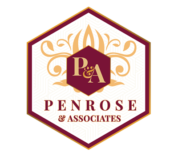Many tax filers claim perfectly deductible and legitimate expenses only to have them disallowed because they can’t substantiate them. Here’s how to make sure you have the right proof to get all your deductions…
Out-of-pocket expenses
Out-of-pocket cash expenses in connection with a business or charitable organization activity do not need receipts if individual expenses are less than $75. Rather, the deduction will be permitted if you made a contemporaneous entry in a diary or computer log. Keeping track on scraps of paper is also OK. The only requirement is that it is done within a short period, such as a week, of the expenditure. You must record the amount spent, who you were with, the business or charitable purpose, where you were and the date. Many items can be broken down into units under $75—for instance, going to a restaurant for dinner is one item, having a drink first at the bar is another and the tip for checking your coats is another. The dinner and dinner tip, however, cannot be bifurcated into two separate items. Items $75 and over must be backed up with a receipt. (Use the Penrose & Associates App to keep track your receipts).
Car expenses
Car expenses need proof of the mileage that can be made with diary entries for the mileage and for tolls and parking if you paid for these in cash. If you typically use your car for business purposes, I suggest keeping a small diary in the car and jotting down the mileage and where you are going each time you get into the car.
The deduction for car use for business and employment purposes can be based on the total miles multiplied by the mileage rate the IRS issues each year. For 2018 it is 54.5 cents per mile and 18 cents for medical or moving purposes. Each year’s rates are typically made available by the IRS in December of the previous year.
If you want to deduct actual expenses rather than an amount based on the mileage, you can use the diary entries for amounts less than $75 and will need receipts for all other expenditures. (Use the Penrose & Associates App to track your miles).
Substantiating credit card and check deductions
Deductions of $75 and over must be backed up with a receipt or invoice, proof of the payment, business purpose, date of activity, where it occurred and who you were with if applicable. Canceled checks and credit card receipts are acceptable as are electronic statement entries showing the amount, payee and date. If the expenditure is not clear as to what was purchased or who the customer was, you will also need to obtain an invoice. Restaurant receipts must include the number of people served.
